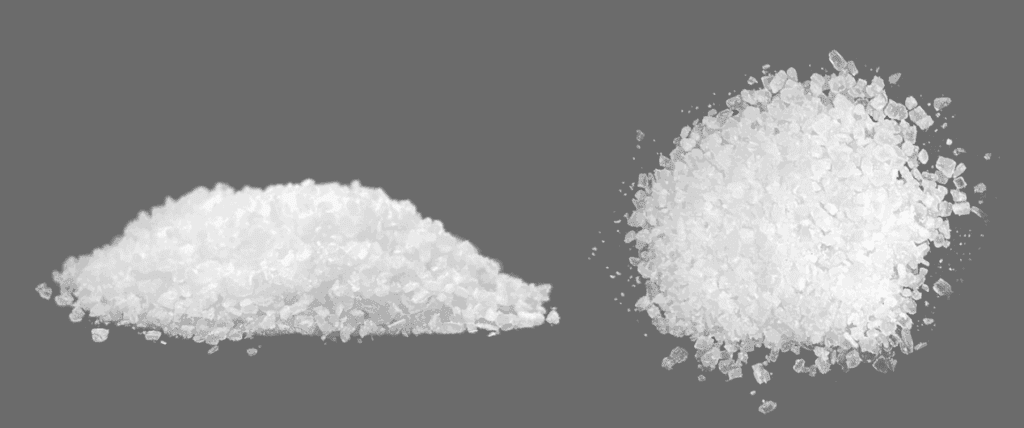
Acidum muriaticum
Latin name: Acidum muriaticum
Short name: Mur-ac.
Common name: Hydrochloric Acid | Muriatic Acid | Spirit of Salt
Primary miasm: Syphilitic Secondary miasm(s): Psoric
Kingdom: Minerals
Family: Inorganic Acid
- Symptomatology
- Remedy Information
- Differentiation & Application
Muriaticum acidum is a solution of hydrogen chloride gas in water—commonly known as hydrochloric acid, a corrosive, highly acidic compound used industrially. In homeopathic form, it acts primarily on the vital force, particularly when it is low or exhausted. It reflects a deep debility, with mental indifference and physical prostration. It affects the mucous membranes, rectum, nervous system, and the circulatory system, showing signs of ulceration, involuntary discharges, and internal haemorrhaging.
Used industrially for pH regulation, cleaning, and chemical synthesis. Historically used in dilute form to stimulate digestion and as a disinfectant.
Proved by Dr. Hahnemann and his students; symptoms developed through toxicological accounts and clinical confirmation.
- Rectum and anus – prolapse, ulceration, incontinence
- Mucous membranes – mouth, throat, genitalia
- Circulatory system – haemorrhagic tendencies
- Nervous system – extreme prostration, unconsciousness
- Skin – ulcers, bedsores, eruptions with blue surroundings
- Vital force – low states after acute diseases or exhaustion
- Mental state – indifference, stupor, apathy
- Lying quietly
- Resting with legs slightly flexed
- Cool air
- After stool or urination (temporarily)
- Heat, especially warm rooms
- Evening and night
- Motion or slightest exertion
- Suppression of discharges
- During fevers, or after acute illness
- Physical contact or being touched
- During menses or in old age
- Arsenicum album – Restlessness, debility, offensive discharges; but more anxiety and fastidiousness
- Carbo vegetabilis – Collapse, coldness, and air hunger, but more bloating and flatulence
- Phosphorus – Haemorrhagic tendency, but more excitability, not stupor
- Sulphuric acid – Also prostrated and offensive, but more acidity and tremors
- Baptisia – Typhoid states with confusion, but more besotted and “drunken” state
- Lachesis – Haemorrhagic and ulcerative, but loquacious and hot-blooded
- Complementary: Sulphur, Phosphorus
- Antidotes: Camphora, Nux vomica
- Follows well: Arsenicum in collapse; Baptisia in typhoid
- Inimical: Lachesis (may antagonise deeply ulcerative states)
Muriaticum acidum reflects the collapse of life force, marked by mental apathy, physical prostration, and ulcerative discharges. There is no will to resist—life seems too heavy to carry. The body is falling apart, with haemorrhages, ulcers, and incontinence. The soul has retreated into silence. Its essence lies in the quiet death-like state, where the patient may not cry out but is slowly sinking inward. It is a remedy of final stages, yet also of transformation, where intervention may arrest the descent into fatality.
- Suited to low vitality states post-typhoid, diphtheria, or childbirth
- Use in ulcerative stomatitis or scorbutic gums with foul breath
- Excellent for haemorrhoids that protrude and bleed easily
- Use in bedsores with bluish base and foul odour
- Incontinence and prolapse of rectum in elderly or infants
Mind
- Apathy, indifference
- Delusion he is despised
- Weak memory
- Moaning in sleep
Mouth
- Ulcers, offensive
- Tongue, flabby, imprint of teeth
- Bleeding gums
Rectum
- Prolapse after stool
- Haemorrhoids, bluish, painful
- Involuntary stools
Urine
- Incontinence, night
- Offensive odour
- Dribbling, weakness of bladder
Skin
- Ulcers with blue margins
- Bedsores, gangrenous
- Petechiae
Generalities
- Weakness, collapse
- Offensive discharges
- Heat aggravates
- Better for cool air
- Samuel Hahnemann – Materia Medica Pura: Original proving, especially ulceration and debility
- J.T. Kent – Lectures on Homoeopathic Materia Medica: Mental and rectal spheres, haemorrhoids
- William Boericke – Pocket Manual: Clinical tips and generalities
- C. Hering – Guiding Symptoms: Mouth, tongue, collapse symptoms
- John Henry Clarke – Dictionary of Practical Materia Medica: Extensive throat, rectum, and skin symptoms
- Allen’s Encyclopaedia: Pathological confirmations and collapse cases
